Frank Lloyd Wright’s single New York City public building is not a swaggering, self-glorifying monument but rather a kind of Rosetta stone to interpret a lifetime of ideas, argues a new book.

In October 1959, when the Solomon R. Guggenheim Museum opened the doors to its new building on Manhattan’s Fifth Avenue, it promptly became “the obligatory topic of every New York conversation,” noted the writer Italo Calvino. The last built work by Frank Lloyd Wright, who had died earlier that year at 91, was not showered with praise, as one might now expect, but pelted with criticism. Most of its detractors rallied behind one specific indictment: “Everyone claims that the architecture dominates the paintings and it is true,” explained Calvino, who, in his blithe acceptance of the museum as a place to go “primarily to see the architecture,” stood almost entirely alone.
Calvino’s remarks form the opening epigraph of The Guggenheim: Frank Lloyd Wright’s Iconoclastic Masterpiece, a new history of the building by Francesco Dal Co and the second installment of the Great Architects/Great Buildings series published by Yale University Press. In the spirit of the inaugural volume—an essay also by Dal Co on Paris’s Centre Pompidou—the historian sets out again to trace the circumstances that enabled the realization of a building so resistant to the orthodoxy hardening around it. Drawing from correspondence, theoretical discussions, technical analyses, and substantial previous scholarship, he illustrates the charged climate surrounding the genesis of the Guggenheim, condensing decades into a narrative of overlapping events to arrive at new interpretations of Wright’s masterpiece.
Diese Geschichte stammt aus der October 2017-Ausgabe von Metropolis Magazine.
Starten Sie Ihre 7-tägige kostenlose Testversion von Magzter GOLD, um auf Tausende kuratierte Premium-Storys sowie über 8.000 Zeitschriften und Zeitungen zuzugreifen.
Bereits Abonnent ? Anmelden
Diese Geschichte stammt aus der October 2017-Ausgabe von Metropolis Magazine.
Starten Sie Ihre 7-tägige kostenlose Testversion von Magzter GOLD, um auf Tausende kuratierte Premium-Storys sowie über 8.000 Zeitschriften und Zeitungen zuzugreifen.
Bereits Abonnent? Anmelden

No New Buildings
The energy already embodied in the built environment is a precious unnatural resource. It’s time to start treating it like one.

The Circular Office
Major manufacturers are exploring every avenue to close the loop on workplace furniture.

Signs of Life
Designers, curators, and entrepreneurs are scrambling to make sense of motherhood in a culture that’s often hostile to it.
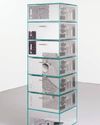
Interspecies Ethic
In probing the relationship between humans and nature, two major exhibitions question the very foundations of design practice.
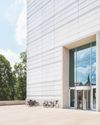
Building on Brand
The Bauhaus turned 100 this year, and a crop of museum buildings sprang up for the celebration.
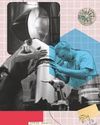
Building for Tomorrow, Today
Radical change in the building industry is desperately needed. And it cannot happen without the building trades.
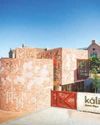
Strength from Within
Maggie’s Centres, the service-focused cancer support network, eschews clinical design to arm patients in their fight for life.

Next-Level Living
The availability of attractive, hospitality-grade products on the market means everyday consumers can live the high life at home.
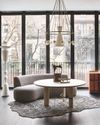
Mi Casa, Su Casa
Casa Perfect creates a memorable shopping experience in lavish private homes.

Enter The Culinarium
AvroKO imagines the future of residential amenities—where convenience, comfort, and sustainability meet.